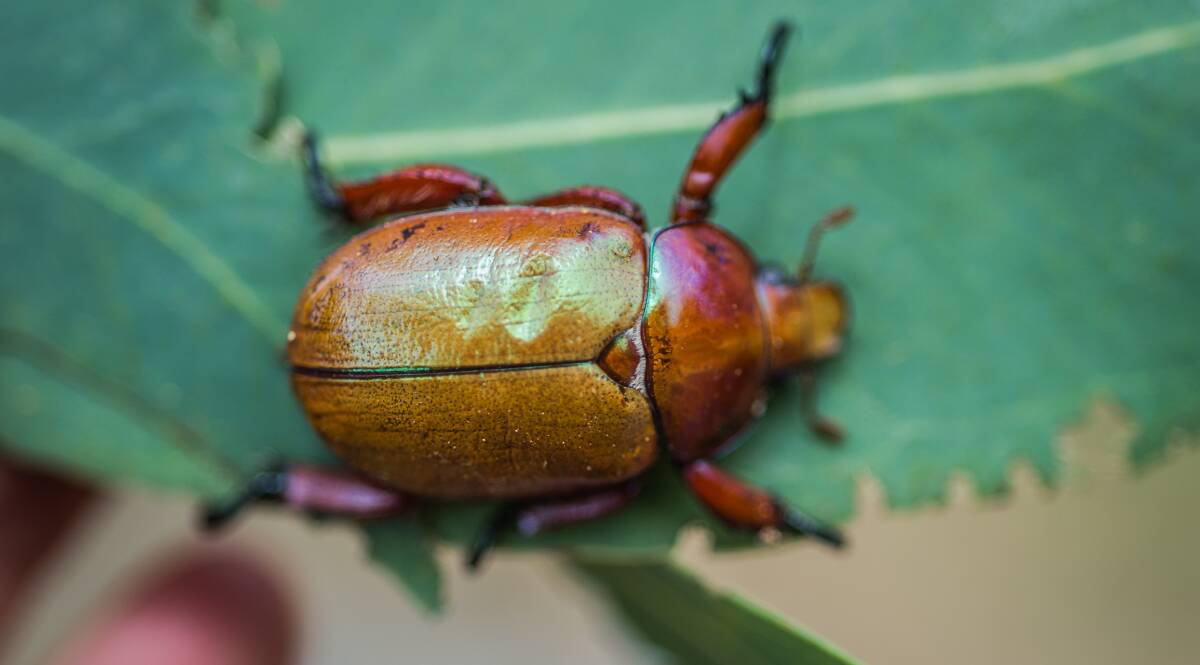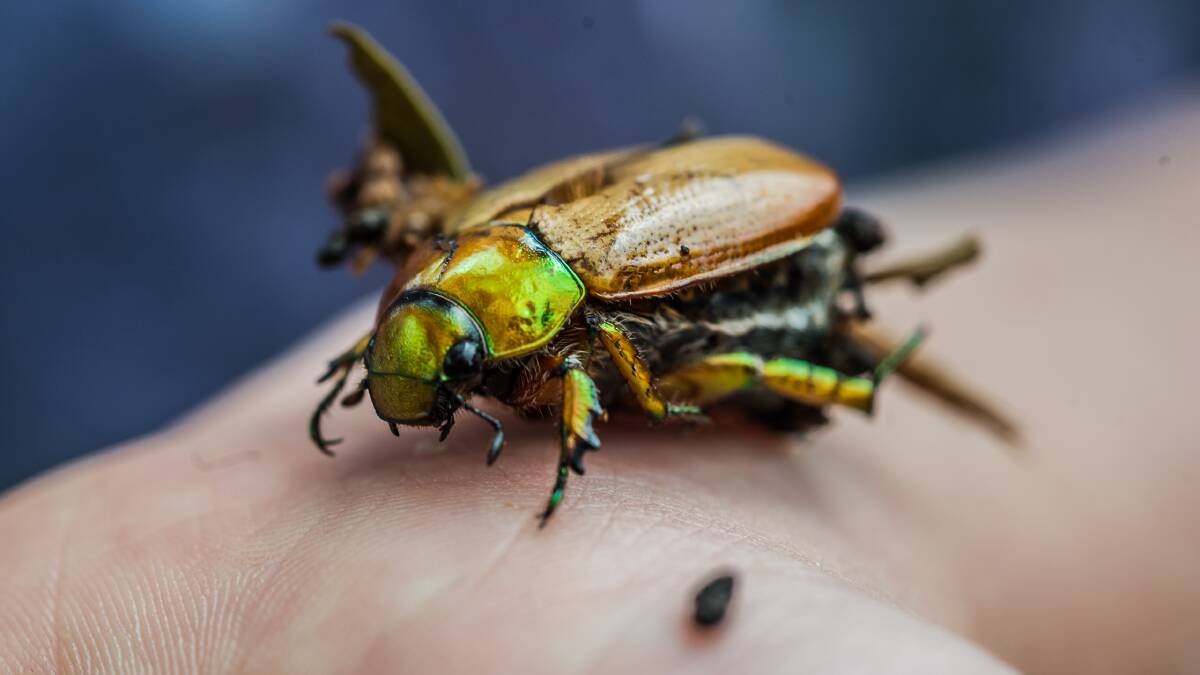
This year the number of Christmas beetles being seen around is on the decline, and experts say the drought and severe bushfires are to blame.
Subscribe now for unlimited access.
$0/
(min cost $0)
or signup to continue reading
While there are no official numbers of Christmas beetle populations around Canberra, entomologists say fewer have been seen this year.
Maitland residents have also spoken about the absence of Christmas beetles around their homes in recent weeks. It was a similar story last year as well.
But why? What is happening to the festive Christmas beetles?
Director of the Australian National Insect Collection at the CSIRO, Dr David Yeates, said numbers of the species had been on the decline.
"Entomologists in Canberra have seen fewer and fewer Christmas beetles around, but their populations are never stable," Dr Yeates said.
"Processes like the drought could be influencing population numbers, but it could bounce back afterwards."
There are around 35 Christmas beetle species across Australia, most coming out around late November to early December, coinciding with the hatching of new larvae.
Dr Yeates said while land clearing and a loss of habitat were among the key factors in lower Christmas beetle numbers, bushfires that have ravaged parts of eastern Australia had exacerbated the issue.
"With the fires this summer, they're so extensive and huge areas have been burnt, and the centre of the fire is many kilometres from the edge of the blaze where surviving beetles could repopulate," he said.
"They may have burnt entire populations of some species that are quite narrowly distributed."
Christmas beetles tend to be found in and around eucalyptus trees as well in patches of soil near bushland.

However, Dr Yeates said that many Christmas beetles would not be able to survive if a fire were to come through, such has been the intensity.
The decline has not just been limited to Canberra with similar situations being seen in areas of NSW and Victoria.
While the entomologist says it's not possible to tell how much the population has declined in recent years, the reduction in the species could have wider implications.
Dr Yeates said the loss of insect populations affected wider ecosystems.
"Often you think they're not important to the ecosystem because they're small but they have big ecological roles," he said,
"The main roles they play in the environment for us is organic decomposition and helping to keep the soils healthy and fertile, which keeps the plant population healthy.
"They're also food for larger animals and for many bird species, and if you've got an insect population decline, ecosystems will be less healthy."


